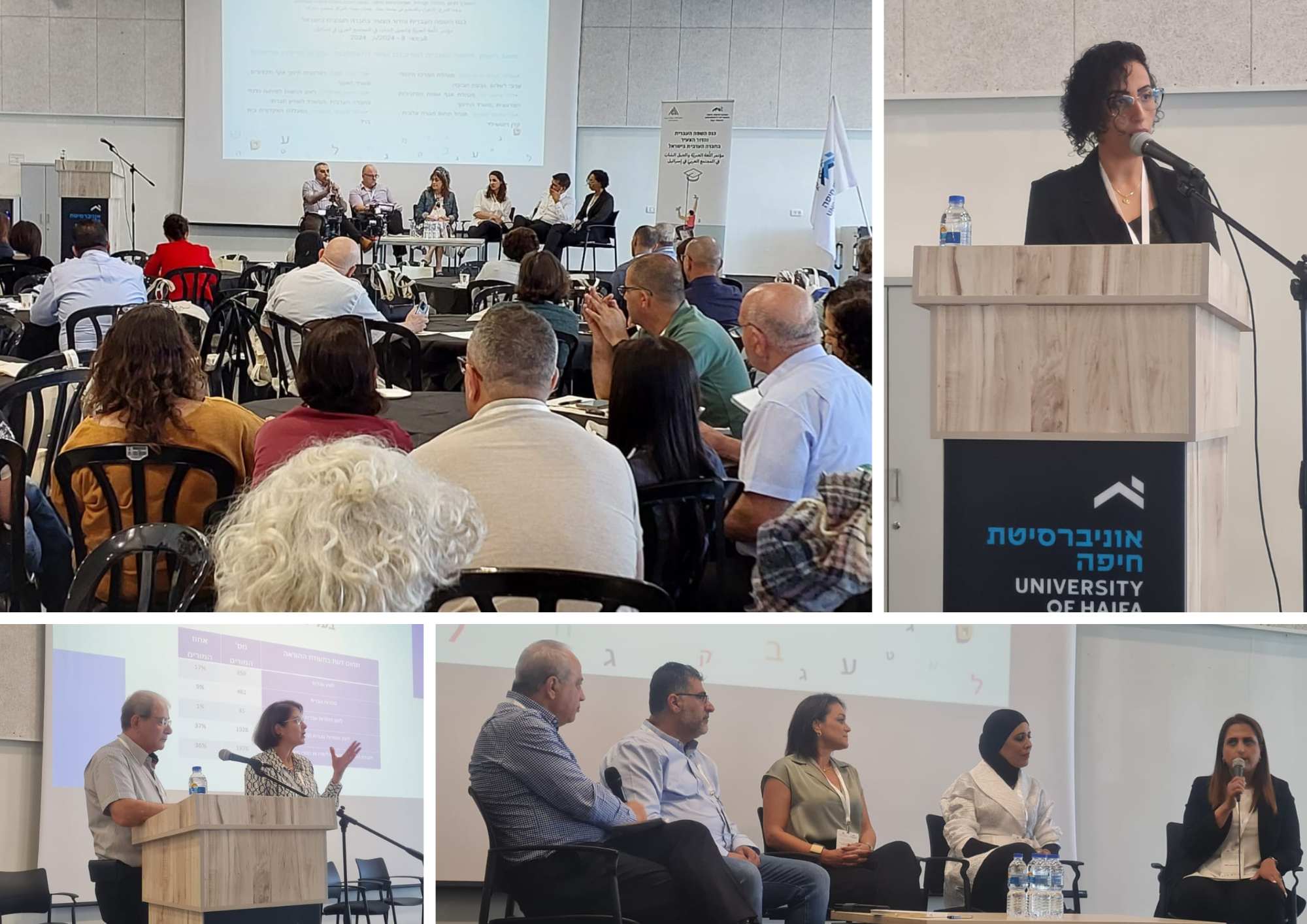A Situation Requiring Rectification
Lack of proficiency in Hebrew seriously harms the integration of young Arabs into the labor market, academia, and Israeli, mostly Hebrew-speaking, society. A particularly disturbing statistic is that most Arab students fail to reach the minimum score in the Hebrew language proficiency test required for admission to undergraduate studies.
In light of this, the conference "Hebrew Language and the Young Generation of Arab Society in Israel" was held at Haifa University on May 8. The initiative was of the Jewish-Arab Peace Center at Givat Haviva and the Diversity, Inclusion, and Community Unit at the University of Haifa.
The conference hosted dozens of educators, senior representatives of government ministries, civil society organizations, researchers, academics, and more. It featured an in-depth research presentation and a direct dialogue with policymakers, emphasizing extensive practical and academic knowledge. Four position papers by experts in the field provided in-depth analysis of the issue and presented practical recommendations to improve the situation.
In addition, innovative and successful initiatives for learning Hebrew in Arab schools were presented at the conference.

Alarming Data
In the keynote lecture, Dr. Marian Tehawkho presented alarming data from a survey of sixth-grade students, which showed that 56% of Arab students do not use Hebrew outside of school. Tehawkho criticized the Arab education system’s lack of uniformity in measuring Hebrew knowledge and lack of coordination between schools, universities, and vocational schools regarding the study of Hebrew.
Tehawkho also presented data from a policy paper of the Aharon Institute at Reichman University from 2020, which she authored together with Idit Kalisher and Ido Moshkalev, showing that:
Tehawkho noted that, despite a slight improvement in the situation, the proportion of Arab men proficient in Hebrew has decreased since 2016. This shows us the need for Hebrew enrichment programs for Arab citizens in Israel.
Primary Failures
Speakers at the conference pointed out a number of central failures in the teaching of the Hebrew language in the Arab education system, including the separation of Arabic and Hebrew education systems, insufficient teacher training, lack of exposure to Hebrew outside of school, content that is not relevant to the student's lives, and a lack of focus on spoken, everyday Hebrew.
Representatives of government ministries acknowledged the problems raised, presented new approaches, and called for cooperation among all the relevant parties.
Hadar Fox, the education representative in the budget division of the Ministry of Finance, stated that "only in recent years have the tools been created to measure the knowledge of Hebrew through all stages” and added that "many times there is a disconnect between the plans of the Ministry of Education and what happens in the classrooms."
The director of Division A in Arab Education at the Ministry of Education, Shirin Hafi-Natur, completely agreed that "something has not been working thus far." She stated that there is a problem coordinating expectations and that "Hebrew was seen as a field of knowledge and not as a tool for communication." Hafi-Natur announced the Ministry’s intention to submit to the government a proposal for a resolution regarding Hebrew studies, emphasizing the need for change in both conception and pedagogy.
The "Hebrew Language and the Young Generation of Arab Society in Israel" conference was an important step in raising awareness of the urgent need to improve Hebrew studies in Arab society and a call for action and cooperation between all relevant parties while outlining needed pedagogical and conceptual changes. This is critical to guaranteeing a better future for Arabs in Israel.
Watch the full documentation of the conference